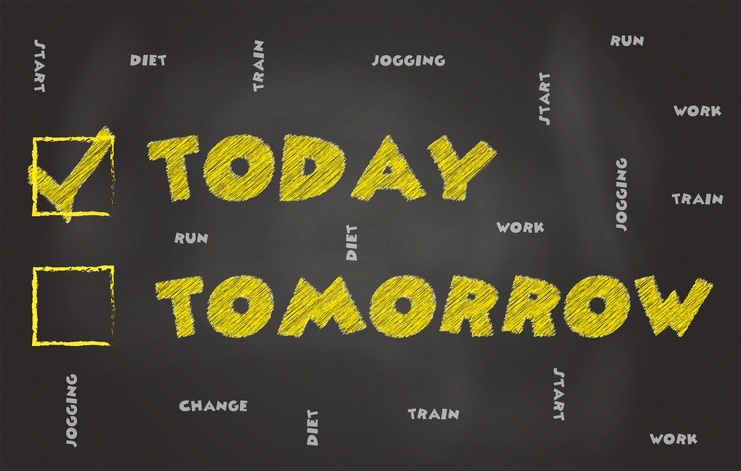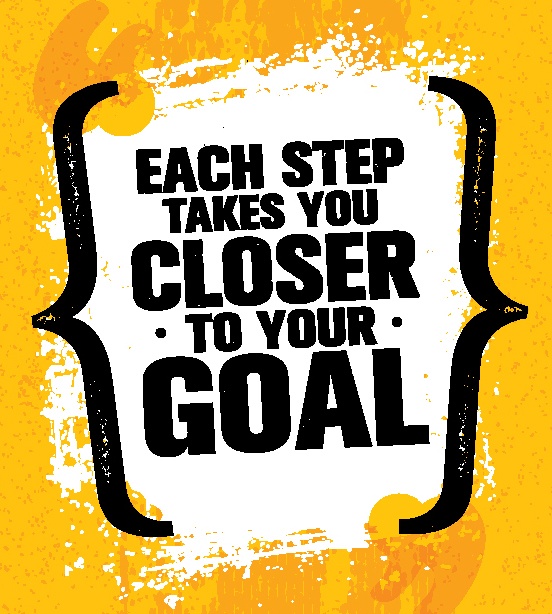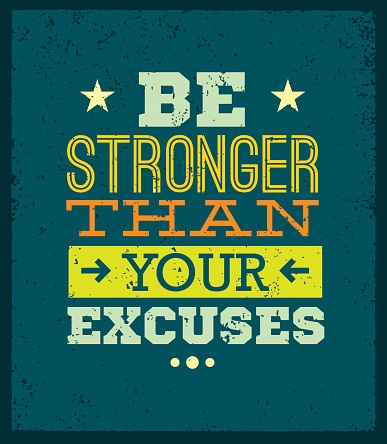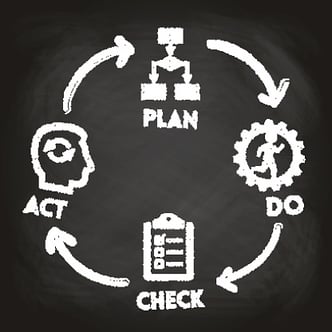 Having something come up that changes your routine or throws off your groove can be frustrating or disheartening because, let’s be honest, we all have things that we want to do. Looking at this from an athlete’s point of view is a little different than that of the general public.
Having something come up that changes your routine or throws off your groove can be frustrating or disheartening because, let’s be honest, we all have things that we want to do. Looking at this from an athlete’s point of view is a little different than that of the general public.
Athletes have essentially three seasons all compressed into one, that being the pre-season, in-season, and off-season. In each of these seasons, an athlete has personal goals that they want to meet alongside the team goals. Some of the personal goals might be to hit a certain weight on a lift in the off-season, or to reach a certain statistic during the in-season. Reaching this personal goal is extremely self-rewarding and makes an athlete strive for more; but what happens when an athlete gets injured?
The Emotional Impact of Injury
Many things happen when an athlete gets injured, but the initial feeling will be some kind of negative emotion, such as disappointment, sadness, or for a more extreme case, depression. These are just a few examples that an athlete can experience on the initial realization of sustaining an injury. An athlete can feel these emotions because it is messing with the goals that they set prior to this injury, just like anyone who had something that didn’t go as planned.
Now that the injury has occurred, and most likely a negative emotion is setting in, there are steps that an athlete can take to help with the rehabilitation process. This process is something that I have some first-hand experience with because I suffered an injury that required me to have surgery and 2–3 months of rehab afterward. These steps are something that I found helpful to keep me on track and stay motivated toward my goals when I was healthy.
Set SMART Goals and Keep Talking to Your Team
I did have that initial negative emotion of disappointment and sadness, but that soon faded once I accepted it, and I had new priorities. I made goals for myself and put on hold my goals from when I was healthy. Having these new rehab goals gave me a new focus, and not on my current situation. The goals that I made were “SMART” goals. What SMART stands for is Specific, Measurable, Attainable, Realistic, and Timely. The “specific” part should answer Who, What, Where, When, Why, and How. “Measurable” is to be able to track your progress and set benchmarks along the way. “Attainable” is having that belief in yourself and that this goal is possible. “Realistic” are the goals that you are willing and able to work at. “Timely” is setting a date for when you want to complete your goal. If you don’t set a date, there won’t be any urgency.
Along with using the SMART goal strategy, I also talked to people and teammates about how things were going. I feel it is essential to talk to someone; you can feel like you are doing this alone because you are on your own schedule and not participating with all of the team activities. An isolated feeling comes, and it can make you feel distant from everyone else. But talking to a teammate, the trainer, or a friend can make you feel like you are still a part of the team and contributing in some aspect.
Goal setting is extremely important for anything you do. It’s more important when it comes to fitness goals. If you don’t write out your goals where you can see them, you’ll forget what you are trying to accomplish. Along with that, the urgency will fade and you’ll start to rationalize with yourself that you can put off one day, and one day becomes one week, and so forth. Having goals will help with any setbacks that come along because if there is one day that doesn’t go as planned, knowing your goal finish line will still keep you on track.
This blog was written by Addison Smith. To find out more about the NIFS bloggers, click here.


 When I discuss working out and fitness with others, one question that I normally ask is, “What are your goals?” and “What does your training look like?” Most times, there will be two responses. The first is from people who are casually exercising without a plan. If you are currently this type of person, don’t get me wrong, it’s good that you are being active, but what if I told you that there is a quicker way to achieve the results that you want?
When I discuss working out and fitness with others, one question that I normally ask is, “What are your goals?” and “What does your training look like?” Most times, there will be two responses. The first is from people who are casually exercising without a plan. If you are currently this type of person, don’t get me wrong, it’s good that you are being active, but what if I told you that there is a quicker way to achieve the results that you want? Can you really win by cheating? Well, the obvious answer is no. Morally, we know that cheaters aren’t supposed to win. If that is the case, why do we cheat ourselves through self-destructive behavior, known as cheat days, throughout the week?
Can you really win by cheating? Well, the obvious answer is no. Morally, we know that cheaters aren’t supposed to win. If that is the case, why do we cheat ourselves through self-destructive behavior, known as cheat days, throughout the week? Zig Ziglar
Zig Ziglar Do you remember what your resolution was almost three months ago when the ball dropped? If you are like millions of other people, you made a
Do you remember what your resolution was almost three months ago when the ball dropped? If you are like millions of other people, you made a  Winter is officialy here. With temperatures getting colder and the weather conditions more temperamental, it’s important to plan ahead to stay on top of your wellness goals. Distractions are inevitable during the holidays, but anticipating them and reacting accordingly will set you apart from most individuals during this season. See our tips below to help combat being sidelined this season
Winter is officialy here. With temperatures getting colder and the weather conditions more temperamental, it’s important to plan ahead to stay on top of your wellness goals. Distractions are inevitable during the holidays, but anticipating them and reacting accordingly will set you apart from most individuals during this season. See our tips below to help combat being sidelined this season Some people in this world are really good at staying committed to something they have started, but there are many others who struggle with meeting a goal or expectation that they have set for themselves, then actually following through with it to completion. It can be a challenge to hit those markers if you cannot seem to stay committed to something, which in turn leads to discouragement, a sense of failure, and feeling defeated.
Some people in this world are really good at staying committed to something they have started, but there are many others who struggle with meeting a goal or expectation that they have set for themselves, then actually following through with it to completion. It can be a challenge to hit those markers if you cannot seem to stay committed to something, which in turn leads to discouragement, a sense of failure, and feeling defeated. A New Year is a great time to
A New Year is a great time to  Of the many lessons that the recent events have provided, one that stands out to me is that anybody can be anything if they take action and pursue it.
Of the many lessons that the recent events have provided, one that stands out to me is that anybody can be anything if they take action and pursue it.  Hopefully you are off to a solid start on your 2017 goals. I would venture to say that many are as we are still in the first month. But if you haven’t started to put those goals into action yet, it’s not too late!
Hopefully you are off to a solid start on your 2017 goals. I would venture to say that many are as we are still in the first month. But if you haven’t started to put those goals into action yet, it’s not too late!  Maybe one of your goals was to complete your first 5K or spring half-marathon. Now is the time to put those goals into action. Join us for our
Maybe one of your goals was to complete your first 5K or spring half-marathon. Now is the time to put those goals into action. Join us for our